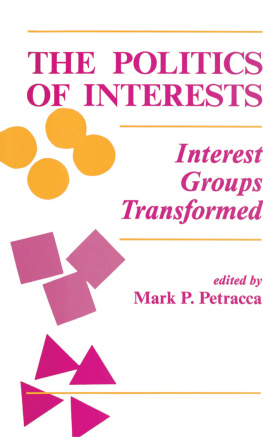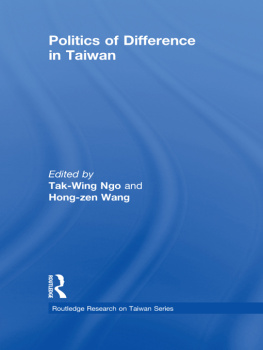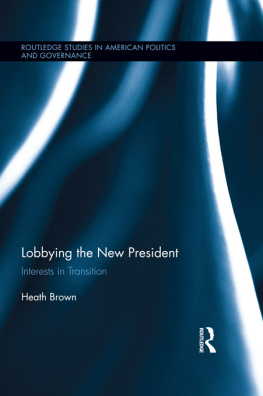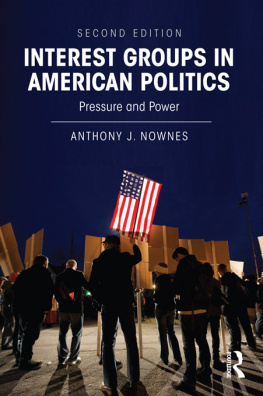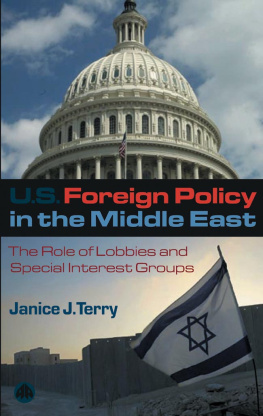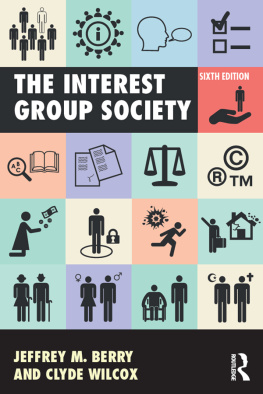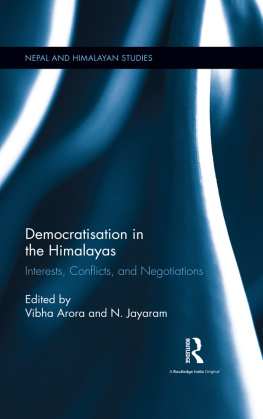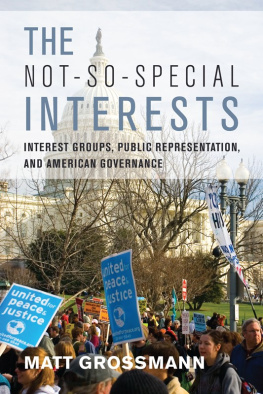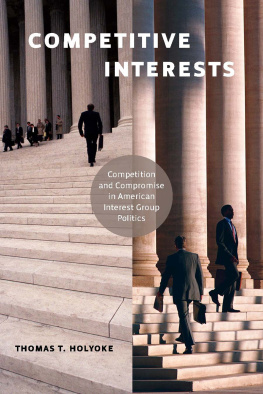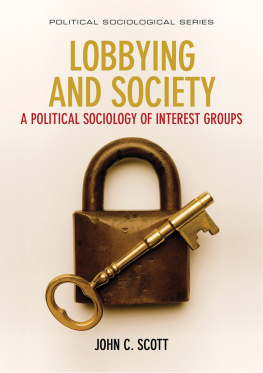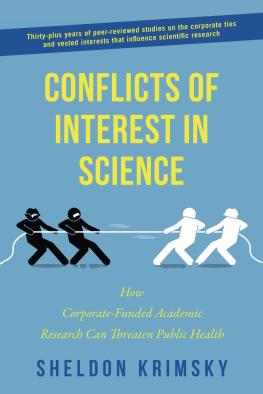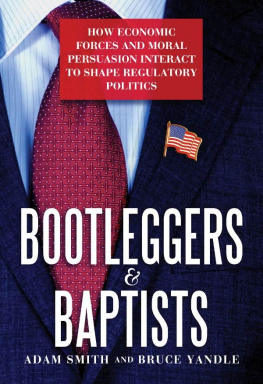The Politics of Interests
Transforming American Politics
Lawrence C. Dodd, Series Editor
Dramatic changes in political institutions and behavior over the past two decades have underscored the dynamic nature of American politics, confronting political scientists with a new and pressing intellectual agenda. The pioneering work of early postwar scholars, while laying a firm empirical foundation for contemporary scholarship, failed to consider how American politics might change or to recognize the forces that would make fundamental change inevitable. In reassessing the static interpretations fostered by these classic studies, political scientists are now examining the underlying dynamics that generate transformational change.
Transforming American Politics will bring together texts and monographs that address four closely related aspects of change. A first concern is documenting and explaining recent changes in American politicsin institutions, processes, behavior, and policymaking. A second is reinterpreting classic studies and theories to provide a more accurate perspective on postwar politics. The series will look at historical change to identify recurring patterns of political transformation within and across the distinctive eras of American politics. Last and perhaps most importantly, the series will present new theories and interpretations that explain the dynamic processes at work and thus clarify the direction of contemporary politics. All of the books will focus on the central theme of transformationtransformation in both the conduct of American politics and in the way we study and understand its many aspects.
Titles in This Series
The Politics of Interests: Interest Groups Transformed , edited by Mark P. Petracca
The Supreme Court and Partisan Realignment: A Macro- and Microlevel Perspective , John B. Gates
The Transformation of the Supreme Court's Agenda: From the New Deal to the Reagan Administration , Richard L. Pacelle, Jr.
Public Opinion in America: Moods , Cycles , and Swings , James A. Stimson
The Parties Respond: Changes in the American Party System , edited by L. Sandy Maisel
The Electoral Origins of Divided Government: Competition in U.S. House Elections , 1946-1988 , Gary C. Jacobson
Congress , the President , and Public Policy , Michael L. Mezey
Issues and Elections: Presidential Voting in Contemporary America A Revisionist View , Euel W. Elliott
Remaking American Politics , edited by Richard A. Harris and Sidney M. Milkis
Democracies in Crisis: Public Policy Responses to the Great Depression , Kim Quaile Hill
Managing the Presidency: The Eisenhower Legacy From Kennedy to Reagan , Phillip G. Henderson
Forthcoming
Creative Campaigning: PACs and the Presidential Selection Process , Anthony Corrado
Congress and the Administrative State , Second Edition, Lawrence C. Dodd and Richard L. Schott
The Congressional Experience: A View from the Hill , David E. Price
The Politics of Interests
Interest Groups Transformed
Edited by
Mark P. Petracca
University of California-Irvine
Transforming American Politics
First published 1992 by Westview Press
Published 2018 by Routledge
711 Third Avenue, New York, NY 10017, USA
2 Park Square, Milton Park, Abingdon, Oxon OX14 4RN
Routledge is an imprint of the Taylor & Francis Group, an informa business
Copyright 1992 Taylor & Francis
All rights reserved. No part of this book may be reprinted or reproduced or utilised in any form or by any electronic, mechanical, or other means, now known or hereafter invented, including photocopying and recording, or in any information storage or retrieval system, without permission in writing from the publishers.
Notice:
Product or corporate, names may be trademarks or registered trademarks, and are used only for identification and explanation without intent to infringe.
Library of Congress Cataloging-in-Publication Data
The Politics of interests: interest groups transformed / edited by
Mark P. Petracca.
p. cm. (Transforming American politics)
Includes bibliographical references and index.
ISBN 0-8133-1000-8 ISBN 0-8133-1001-6 (pbk.)
1. Pressure groupsUnited States. I. Petracca, Mark P.
II. Series. III. Series: Transforming American politics series.
JK1118.P65 1992
322.4'3'0973dc20 91-34437
CIP
ISBN 13: 978-0-8133-1001-5 (pbk)
For Gina Francesca
The initial idea for an edited volume on the transformation of interest group politics grew out of a panel on interest groups and the presidency that I arranged for the Midwest Political Science Association and a chance meeting with Jennifer Knerr, political science editor at Westview Press. For some time I had been studying the representation of organized interests on federal advisory committees and was beginning to think and write about the changes that had taken place in the advisory committee system courtesy of the Reagan administration (see Petracca 1986, 1988). Little is known about the ways in which advisory committees connect organized interests to the administrative state or about the influence these interests have as a result on national policymaking. Scholars of European politics are familiar with advisory committees as part of societal corporatism; Americanists are rarely familiar with them, if at all. Having previously coauthored a text on the American presidency with Benjamin I. Page, I was also aware of just how little the discipline seemed to know about the general relationship between interest groups and the presidency (see Page and Petracca 1983). With the panel I organized, I hoped to bring together a few scholars working on the various ways in which interest groups are connected to the presidency.
My original intent was to edit a volume focused narrowly on the changes that had taken place in the relationship between interest groups and the presidency during the Reagan era. The Politics of Interests is a far more ambitious undertaking, in large measure because of the intellectual stimulation and encouragement of Jennifer Knerr, the vision of Larry Dodd, and the sound advice of the anonymous reviewers for Westview Press. This is how The Politics of Interests came to join Remaking American Politics , edited by Richard A. Harris and Sidney M. Milkis, and The Parties Respond , edited by L. Sandy Maisel, in the Westview series Transforming American Politics, under the general editorship of Lawrence C. Dodd.
As I was convinced by my own research (Petracca 1988) and a growing body of literature that President Reagan had changed the relationship between interest groups and the White House (see Peterson and Walker 1986; Ginsberg and Shefter 1988; and Peterson and Rom 1988), I was also predisposed, if riot determined, to edit a volume hailing the transformation of the U.S. interest group system. Indeed, once I saw the title of Maisel's excellent volume, The Parties Respond , which was reminiscent of a Star Wars movie, I was gearing up to title my own volume Interest Groups Strike Back . As it turned out, my intended companion to Maisel's volume on political parties had to be filed in the "books-to-be-written" box. Although there have been very important changes in the interest group system and changes in the way scholars study interest group politics, there hasn't been anything near the definitive transformation necessary to merit such a snappy title.


